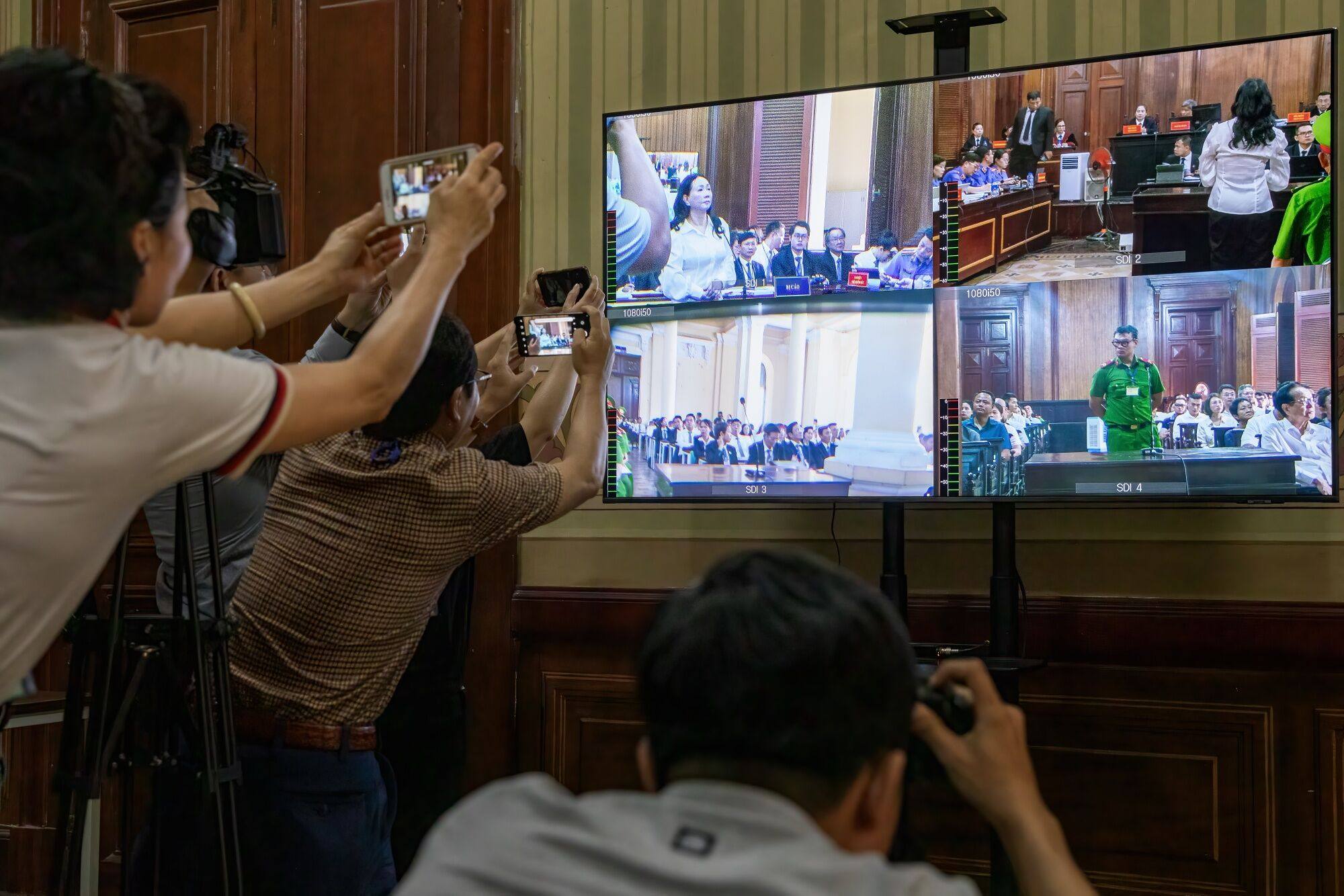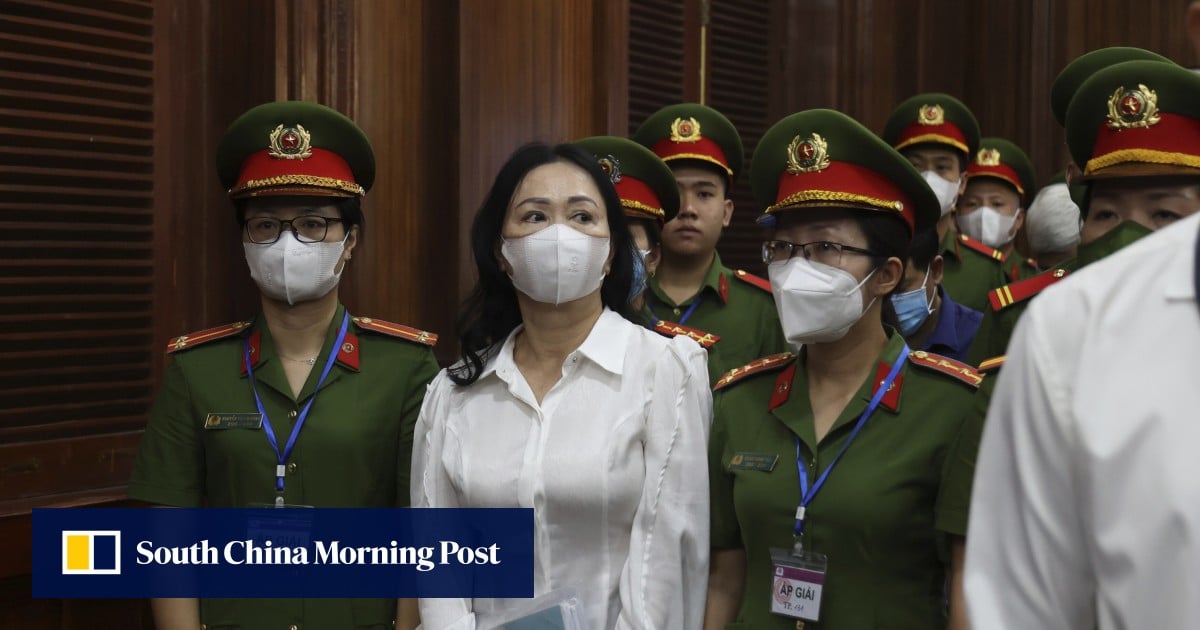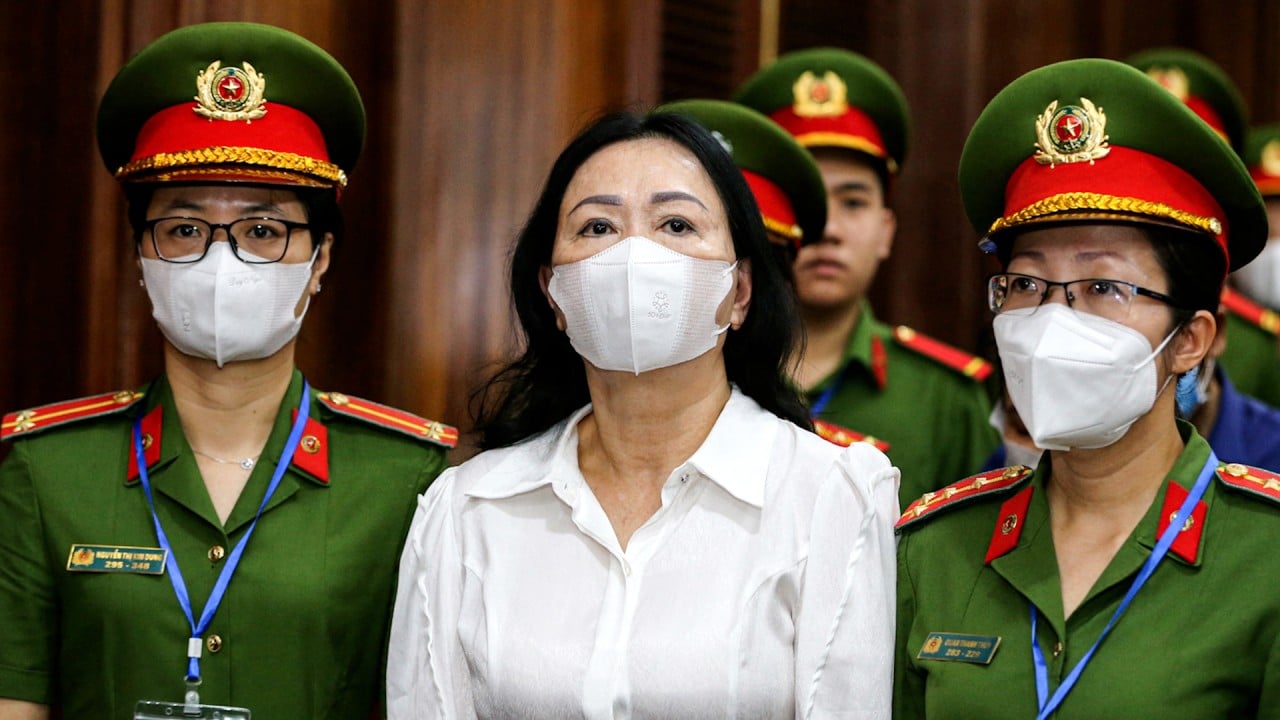Lan was not often photographed at events and before the 67-year-old businesswoman’s court appearance, there was scant information on her private life and companies.
Those early business years yielded few clues to the motivation for the alleged US$12 billion fraud that followed, worth the equivalent of nearly 3 per cent of Vietnam’s 2023 US$426 billion GDP. Lan is accused of using nominee companies in and outside Vietnam to effectively lend herself hundreds of millions of dollars from Vietnam’s megabank Saigon Commercial Bank.
Prosecutors have accused Lan of committing “organised crimes” with “serious consequences” and she faces the maximum death penalty, according to state media. The first part of her trial is set to end in April.
Lan has for years been a central figure in Vietnam’s financial world.
As Vietnam’s Russian arms supplies dry up, who will it turn to for weapons?
As Vietnam’s Russian arms supplies dry up, who will it turn to for weapons?
She orchestrated the merger of troubled SCB with two lenders in 2011 in a plan coordinated with the State Bank of Vietnam, the country’s central bank. Since then, SCB quickly became one of the largest commercial banks by assets in Vietnam.
But revelations in the court case against her had gripped Vietnam and shocked the world.
Lan, who became the chairwoman of property giant the Van Thinh Phat Group, or VTP, managed around 1,000 entities, dubbed “ghost” companies that are registered in Vietnam and overseas and operating under the VTP umbrella, according to prosecutors. These entities served as conduits for the flow of loaned funds.
VTP was among Vietnam’s richest real estate firms and its projects include luxury residential buildings, offices, hotels and shopping centres.
Vietnam political star’s downfall shocks nation: ‘who will be next president?’
Vietnam political star’s downfall shocks nation: ‘who will be next president?’
Prosecutors say her real shareholding stake in SCB is believed to be more than 90 per cent through over 1,000 ghost companies. They have yet to specify how the embezzled funds were used.
Lan denied the allegations at the start of her trial earlier this month, according to state media.
Chu is accused of helping his wife borrow money illegally from SCB and causing it to lose 9.12 trillion Vietnamese dong (US$368 million).
The scandal has wider ramifications for Vietnam’s financial sector, experts say.
“The ability of Lan to allegedly manipulate SCB for an extended period raises concerns about the overall transparency and accountability within Vietnamese companies,” said Giang Phung, a financial researcher at ISC Paris Business School.
From early 2018 through October 2022, when SCB was bailed out by the state after a run on its deposits, Lan appropriated large sums by arranging unlawful loans to shell companies, according to public investigators.

About US$1.2 billion was lost by holders of bonds issued by Van Thinh Phat, Lan’s real estate firm, the investigators have said.
Lan could only implement her plan by allegedly bribing key state bank officials and governors, according to the investigators. Another 85 people are being prosecuted in connection with the case, including a former central bank official accused of accepting US$5.2 million in bribes.
The alleged involvement of such a high number of individuals and companies, including key players within the banking sector, signals a potential systemic issue where oversight may have been compromised, analysts say.
“While the case does point to potential vulnerabilities in Vietnam’s corporate governance, it is also a testament to the country’s commitment to rooting out fraud and holding individuals accountable, no matter their status,” said Ken Duong, a lawyer at the Duong Global Business Consulting.
Lan owns several large properties in Ho Chi Minh City’s prime locations and has multiple assets abroad, according to investigators and public data. She had a close connection with Ho Chi Minh City’s top leaders, which leveraged her access to prime locations and helped support her frauds, according to a government source, who declined to be named.
Are China and Vietnam on collision course over Beijing’s Gulf of Tonkin marking?
Are China and Vietnam on collision course over Beijing’s Gulf of Tonkin marking?
The anti-graft campaign has led to multiple high-profile arrests and the resignation of top figures, including the country’s former president Vo Van Thuong this month.
Foreign direct investment in Vietnam rose by 32.1 per cent to a record high of US$36.6 billion last year, according to the country’s official data.
There has been concern Lan’s trial could severely damage investor confidence in Vietnam’s business environment, making it harder to attract much-needed foreign investment.
“Foreign investors might become more cautious, demanding stricter regulations and better due diligence procedures before entering the Vietnamese market”, Giang said.


